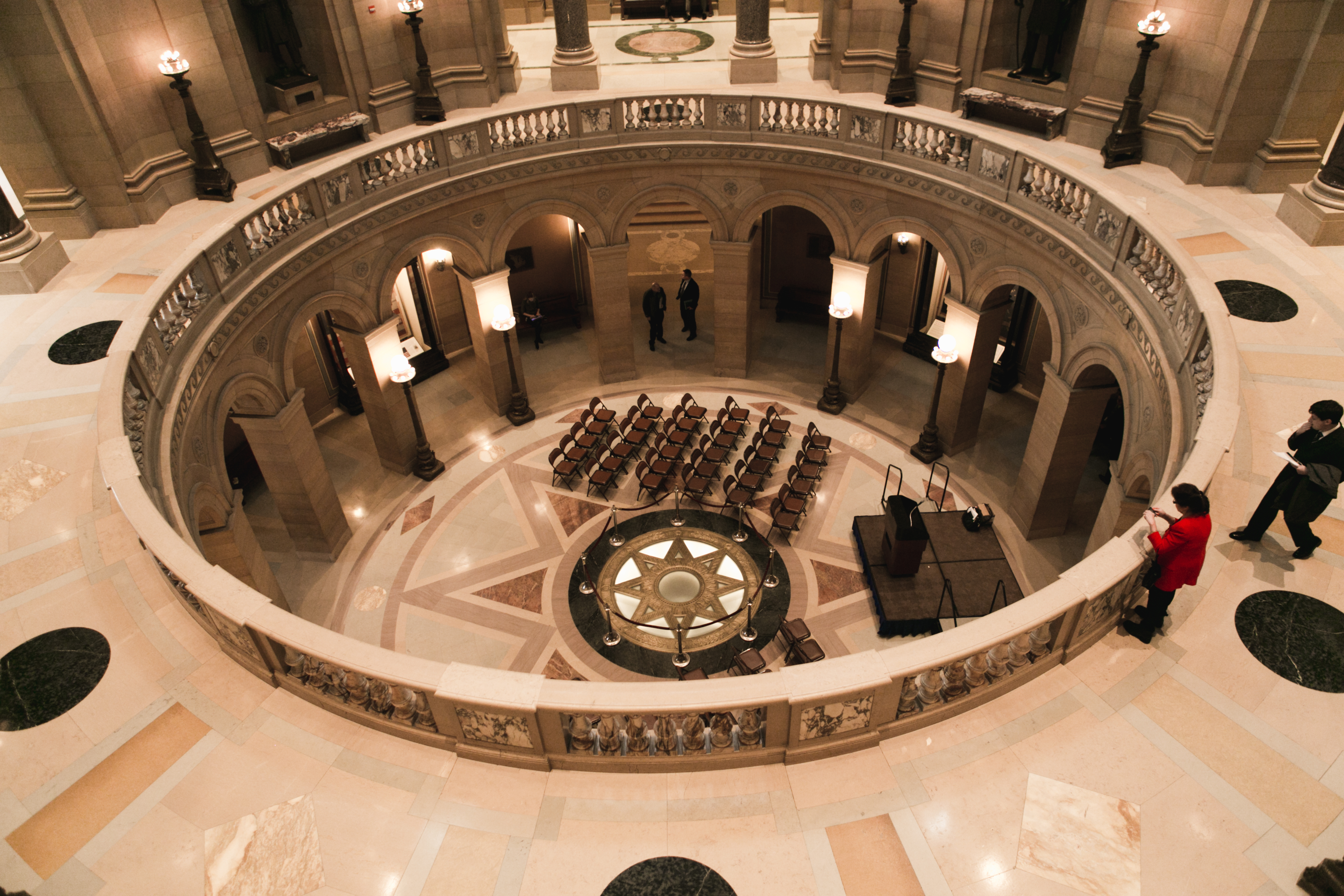As the Minnesota Legislature prepares to convene for the 2020 Session on Tuesday, a key focus is expected to be bonding. MREA also will be advocating to address teacher shortages and cooperative facility needs. While there is a surplus in the state coffers, the budget for the biennium has already been set with last session’s work.
Here’s a look at what to expect:
New Legislators
Minnesota is still the only divided Legislature in the nation. There were some notable changes in the composition of the Legislature during the interim.
There are two new House members – Sydney Jordan (DFL) just won the election in Minneapolis to replace Dianne Loeffler who passed away last fall and Paul Novotny (R) won the special election in the Elk River area to replace Nick Zerwas, who retired from the Legislature in November. This doesn’t change the composition of the House, as both parties still hold the same number of seats.
The Senate had a major change take place on Feb. 1. The DFL Senate Caucus met and Sen. Susan Kent was elected its new Minority Leader. She defeated Sen. Tom Bakk, one of the longest serving members and considered one of the most powerful politicians in Minnesota. It is a very interesting development and, at this time, it is still unclear how that will affect the work in the Senate.
Bonding Focus
The key focus of the session will be on the Bonding Bill. Historically the State appropriates around $1 billion to assist projects. The Governor has released his proposal and is looking to fund around $2.5 billion dollars in projects all around the state.
The House and Senate both held tours to all four corners of the state during the interim and will now begin crafting their proposals. While they still need to assemble their bills through the hearing process, it is unclear how much money they will appropriate in their respective bills.
The Senate has indicated they are willing to spend around the traditional $1 billion. The House hasn’t suggested what they might be willing to spend but conventional wisdom suggests that number would be closer to the Governor’s proposal than to the Senate’s.
The peculiarity with bonding legislation is that a bill appropriating general obligation bonds requires a 60 percent super majority vote from the Legislature to pass. This means, with the current composition of membership in the Legislature, DFL votes will be required in the Senate and Republican votes will be required in the House to get a bill to the Governor’s desk.
Another factor setting the table for the session was the November Budget Forecast, which shows a $1.3 billion surplus. While that is good news for the State’s finances, only $220 million of that reserve can be used as ongoing funding. The remainder, if used, would only be eligible to be one-time appropriations.
Key Issues
Republicans have indicated they would prefer to use the surplus to provide tax relief while the Governor has indicated he would like to use the money for limited spending projects. The House DFL will prioritize early childhood programs in any supplemental bill they advance. None of the ‘powers that be’ have mentioned spending for K-12 initiatives.
Most likely, if a supplemental budget bill is passed by the Legislature, it will be comprised of minor budget adjustments and one-time targeted program initiatives.
MREA is working on several such proposals that would create several regional teacher Grow-Your-Own initiatives and stipends for student teachers in rural areas. Additionally, MREA is seeking support for a cooperative facility levy authority for member districts of cooperatives.
What’s Next
While the even year sessions start later than a budget year, that doesn’t mean the pace will be any slower. In fact the opposite is the case. Deadlines to hear bills are compacted and the discussion around bonding will take up much of the time. The first policy bill deadline is March 13 and the deadline for any supplemental budget legislation is April 3.
Complicating the session dynamics is a proposal to amend the state’s constitution as it relates to education. MREA and many school leaders met last week with former state Supreme Court Justice Alan Page and Federal Reserve Chairman Neel Kashkari to discuss their proposal. An intense discussion took place, but a consensus on what the constitution should say is a long way off.
Adding to session dynamics is the fact that every member of the Legislature is up for election in November. Election year politics always plays into the mix as the DFL and Republican caucuses look to gain an electoral advantage.





